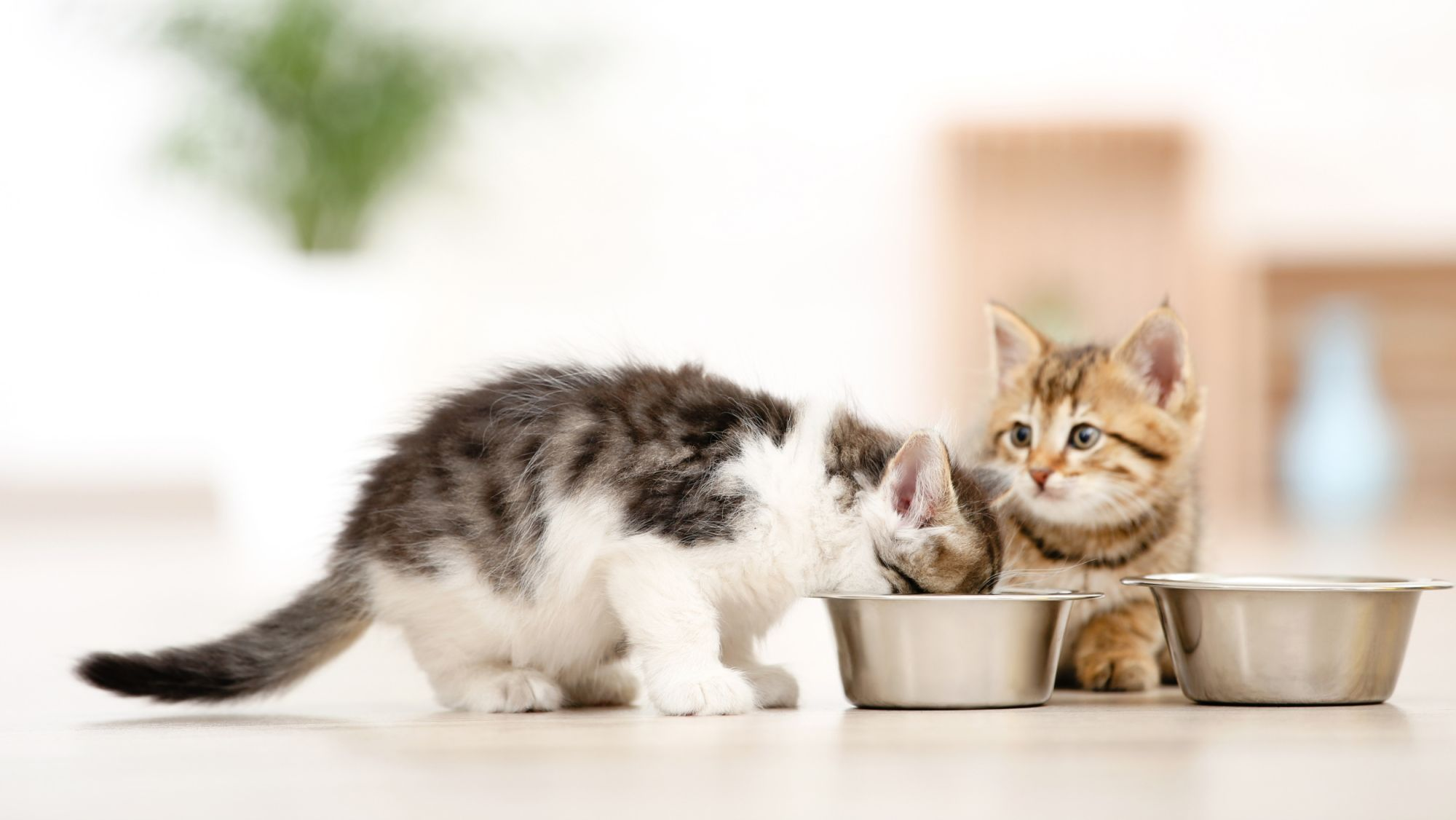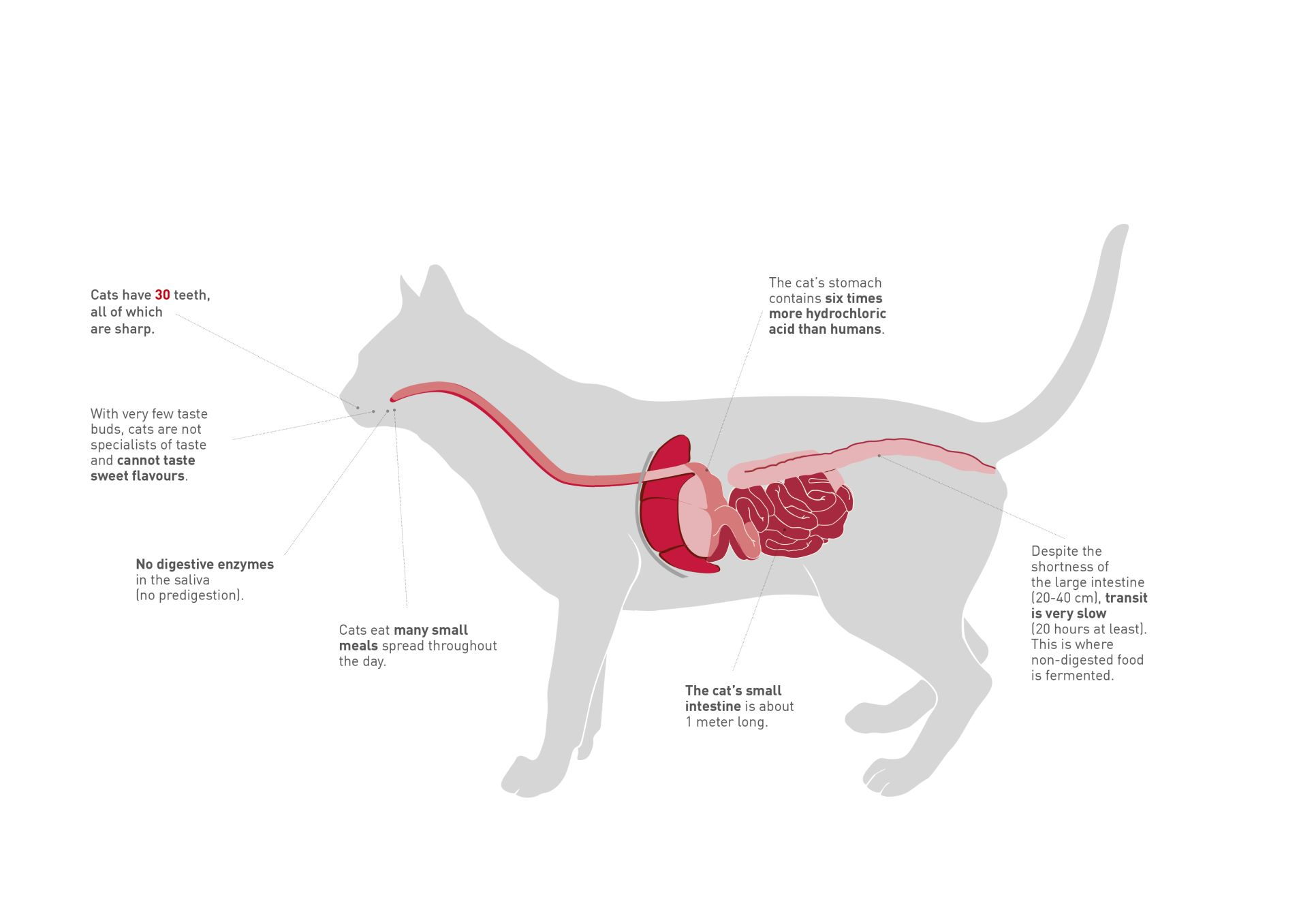How do cats digest food?
Article


Why is digestion different in kittens?
Kittens are born with an immature digestive system. At birth, their digestion is adapted to digest milk from their mother. Over time, they will lose the ability to process the lactose in milk which is why offering milk to adult cats can cause digestive upset. The queen’s milk has a unique composition adapted for the relatively rapid growth of her kittens. Compared to cow’s milk, the queen’s milk is lower in lactose and higher in energy and protein than cow’s milk. Cow’s milk is also low in taurine, which is an essential amino acid in kittens. For these reasons, cow’s milk is not appropriate for kittens. When kittens can’t be fed by nursing from their mother, a replacement milk that is formulated specifically to be as close as possible to a queen’s milk should be used.
As your kitten grows, their digestive system is better able to handle more complex foods that include nutrients such as starch. But this process happens gradually, so it’s important to always feed them food appropriate for their age. To make it easier to navigate the options, we’ve labelled our products with this information. When in doubt, ask your veterinarian for guidance.
How can nutrition help support a kitten’s digestive system and general health?
It’s essential to feed your kitten a diet that is highly digestible and contains the nutrients they need at levels that are adapted for their growth and development, along with a blend of fibres for their digestive health. For the first 3 months of life, your kitten will grow and change rapidly and will have energy needs that are high – 2 to 2.5 times more energy per kilogram of body weight than an adult cat! As the growth rate begins to slow down, your kitten’s energy needs will start to decline but they are still developing so feeding a diet with nutrients adapted for growth is still important. Refer to the feeding guidelines on the package to adjust your kitten’s amount as they grow. Overfeeding can stress the digestive system and contribute to obesity. Weigh your kitten regularly as they grow, and using a gram scale instead of a cup to measure the food will help ensure accuracy and help your kitten grow to their full adult potential!
Related Articles
Like & share this page